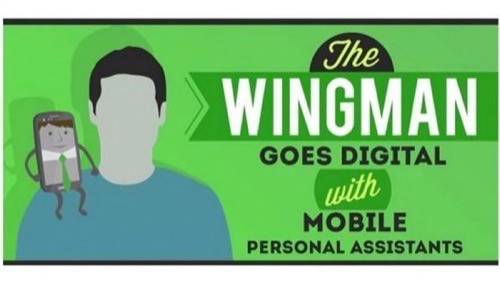
In bygone days, people used have these people they employed to do things for them. Called “assistants,” these people would respond to your correspondence, make dinner reservations, print directions, perform research and bring your dry cleaning to the laundress. For the lucky few that employed these assistants, these mundane but necessary tasks were easily outsourced to young go-getters with an eye for socio-economic advancement.
These days, almost no one has a real live assistsant. Fortunately, though, most of these tasks can now be completed through virtual assistants on your smartphone.
Siri Started It?
Popularized by the advent of Apple’s Siri on the iPhone, the virtual personal assistant has gained widespread acceptance among smartphone-toting folk. Hey, you can talk to it and, if you are lucky, it will talk back. You may not be able to get it to take your dry cleaning down to the corner laundromat, but you can probably ask your virtual assistant to search for a dry cleaner that picks up and delivers.
People like the concept of the mobile virtual personal assistant. For years, we’ve been promised a weak form of artificial intelligence that would know where we are, where we are going, and what we like or do not like. It would be smart enough to automatically to block the phone number of your stalker ex. It’s finally starting to happen. In some ways, Google Now is already performing functions like these and we will see the ability of the virtual personal assistant expand considerably in the next couple of years.
Leading that charge is Nuance, which makes voice-control software such as Dragon Naturally Speaking and mobile keyboards like Swype. Nuance licenses its voice-control software to many mobile manufacturers, including Apple (for Siri) and Samsung.
Most People Like Their Virtual Personal Assistants
In a survey of 1,001 consumers, Nuance asked if people really want to use a personal assistant – and what they would do with one. Nearly 61% of respondents were interested in using a personal assistant on their smartphone. About 57% of people that do have a mobile personal assistant use it at least once a daym while 87% use it at least once a week. More than four out of five find their personal mobile assistant useful.
The most popular features for a mobile personal assistant were getting directions (76%), sending a text (75%) and searching the Web (63%). About 78% of respondents said the biggest benefit was that the assistant was hands free. That can be a big advantage, especially in the car. For instance, my mother swears by Siri (though probably not at Siri) while in the car to help her send and receive text messages. In once of the more oddball questions from the Nuance survey, 71% of women said they named their mobile personal assistants.
The survey was conducted for Nuance by Research Now through its website. Respondents were aged 18-45 and lived in the continental United States.
Nuance is betting that the next big vertical in mobile will be voice-controlled assistants. Last week, it reportedly bought VirtuOz, a company that works on intelligent virtual agents, to help beef up its assistant product. VirtuOz is similar to the artificial intelligence system being worked on by a Portland, Ore. startup called Kimera Systems that is attempting to create an artificial intelligence model for smartphones.
Check out the infographic from Nuance below.


















